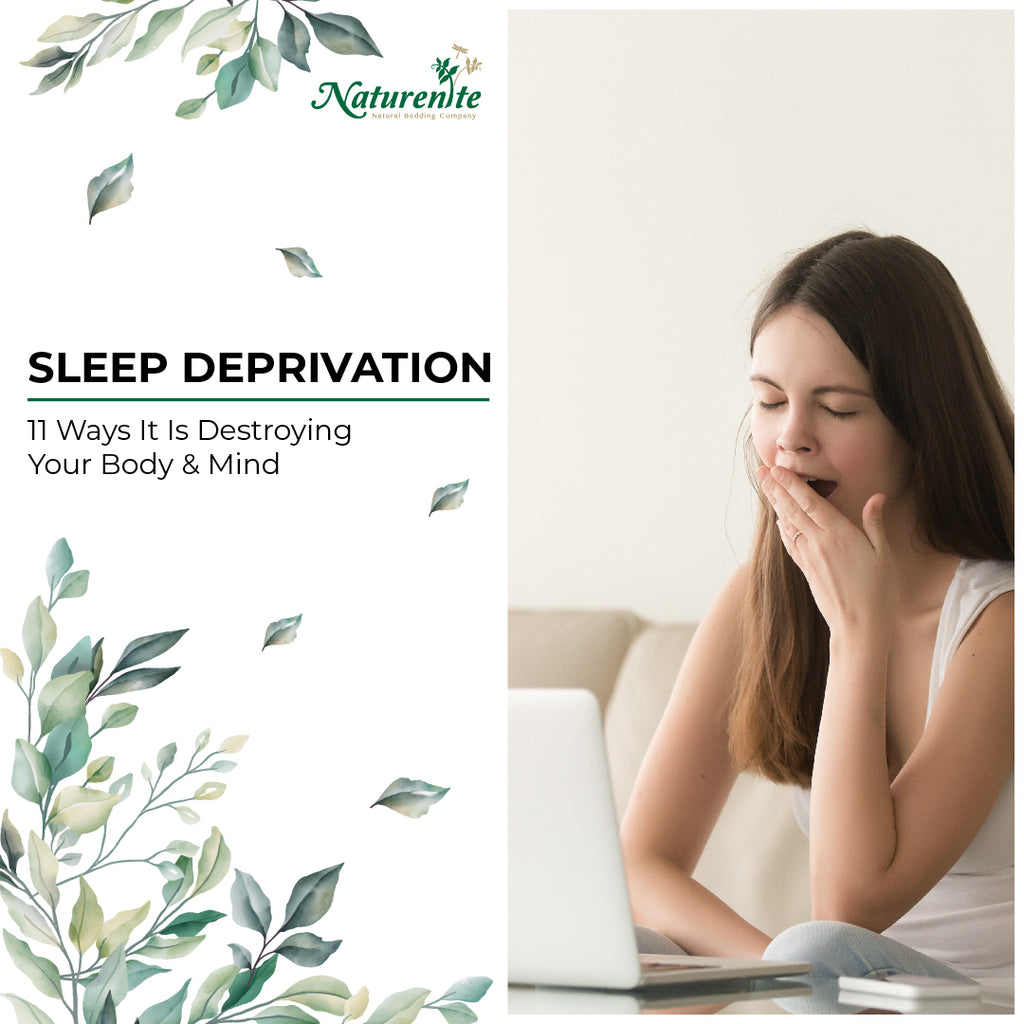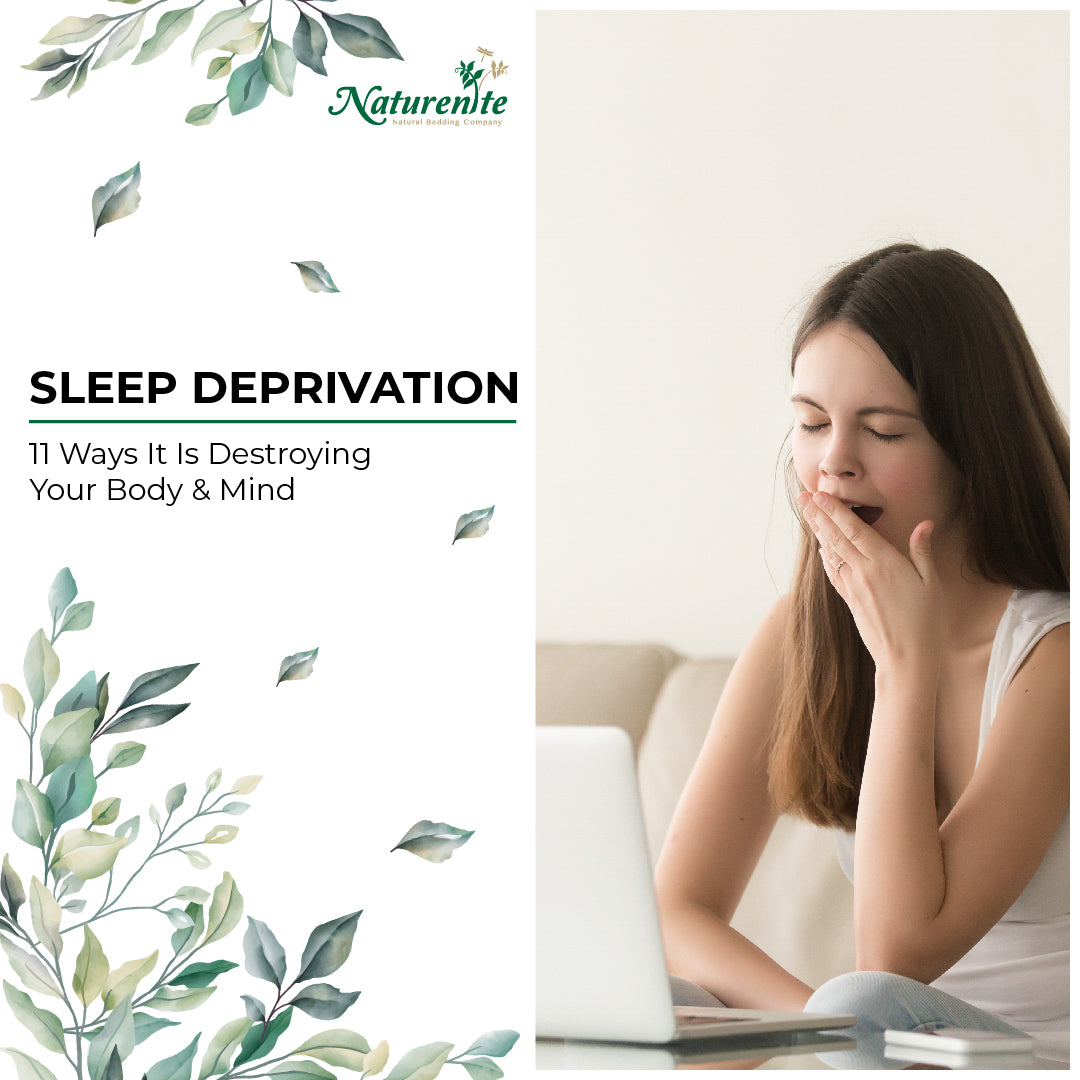
How important is sleep? Well, you can survive longer without food than you can without sleep. In fact, one-third of your human life is spent snoozing away. That said, your sleeping habits deserve attention as it dictates how you perform on a daily basis. Earlier this year, Pantai Hospital Kuala Lumpur’s ENT Head-and-Neck surgeon declared a shocking statistic that 9 in 10 Malaysians are sleep deprived. Sleep deprivation does not only lead to various health complications but also increases accident rates at road and workplaces. In this blog post, we have decided to delve deeper into the chronic issue of sleeping deprivation.
Consequences of sleep deprivation | Why are people sleep-deprived | How do I make sure I get good sleep
Consequences of sleep deprivation
Many are uneducated regarding the consequences that sleep deprivation could lead to. It is safe to say that the ‘sleep-late’ culture is a common one amongst Malaysians for at any hour of the day, our streets are still fairly busy, houses are brightly lit, and many restaurants and bars are filled. This lifestyle choice comes with many effects on one’s health and well-being.

Image Source: Photoroyalty / Freepik
1. Weight gain
Yes, you read it right, the lesser you sleep, the higher the probability of gaining weight! A study conducted by researchers in University of Colorado reveals that by sleeping 5 hours per day for 7 days, one is bound to gain an average of 2 pounds (0.9 kg). Sleep deprivation prompts changes in hormones that are responsible for regulating hunger and appetite. This creates intense cravings for sweet and fatty foods. A healthy individual with a good sleeping schedule is more capable of having a healthy body weight as cravings are diminished.
2. Low sex drive
A common trend of ‘sleep divorce’ is observed among couples whereby couples decide to sleep in separate beds. This may be due to each other’s sleep behaviors such as constant movement and snoring which eventually leads to poor sleep quality. Inevitably, sleep deprivation contributes to low sex drive as it reduces libido as one may find himself/herself too tired to perform sexually. Intimacy levels are also at risks as partners make a choice of sleeping separately.
3. Heart disease
Do you realize that one day you lack sleep, your heart beats faster than usual? Not to mention, a certain sensation of light-headedness and intoxication takes over the body. This is because sleep deprivation leads to high blood pressure. Moreover, inflammation-inducing chemicals are released; contributing to heart diseases. We can deduce that for a healthy functioning heart, one must prioritize quality and sufficient sleep.
4. Poor balance
With lack of sleep also comes a poor sense of coordination. Dizziness occurs due to fluctuations of glucose in blood. On top of that, the fatigue that comes with sleep deprivation also contributes as a factor to light-headedness. In eventuality, one may also have headaches and unclear vision along with dizziness. This leads to our next point, the likelihood of accidents.
5. Accidents
The risk of car accidents increases significantly because of inadequate of sleep. According to a case-control study of 571 drivers involved in road crashes, 19% were caused by drowsiness while driving. At the same time, accidents are more prone to happen at workplaces if one is sleep-deprived. This is especially hazardous to those who handle dangerous machineries and chemicals at their workplaces.
6. Aging skin
Lack of sleep also affects one’s skin as hormonal levels are imbalanced. Hence, dehydrated and dull skin is observed not just on one’s face but on their bodies too. This makes one look aged and reduces their skin radiance. If you’re investing a pocketful on skincare but have been neglecting your sleep, we urge you to re-evaluate. In order for your products to work, sleep needs to be regulated first.
7. Low immunity
Have you or your children been falling sick frequently? Poor sleep habits are definite contributors. As sleep deprivation lowers the body’s ability to fight viruses, one is more likely to easily fall sick. While vitamins and health supplements may help at combatting sicknesses, they do not replace sleep vitality.
8. Memory issues
Lack of sleep disrupts the brain’s ability to retain and process information. This impacts long-term and short-term memory. Studies have also verified that impaired sleep are some of the causes of Alzheimer’s.
9. Concentration and creativity blockage
Sleep-deprived individuals struggle to stay focused and sharp. On top of that, creative abilities become blunter due to tiredness. This affects people of all ages especially working adults as this leads to poor job performance.
10. High Blood Pressure
People who sleep less than 6 hours will have a higher risk of developing high blood pressure. Due to the lacking of sleep, it affects your body's ability to regulate stress hormones and leads to high blood pressure.
11. Risk of Diabetes
Diabetes can occur when your body does not produce enough insulin(blood sugar-lowering hormones). Lack of sleep will affect how the body releases insulin. This will lead to a high sugar level and increase the chances of having type 2 diabetes.
Consequences of sleep deprivation | Why are people sleep-deprived | How do I make sure I get good sleep
Why are people sleep-deprived?
Everyone loves to sleep so why would someone choose to become sleep deprived? More accurately, why would someone inflict deprivation on their bodies? Well, the reasons vary. While some become sleep deprived intentionally, others simply deal with situational factors that lead to sleep deprivation.
Intentional Sleep Deprivation
Intentional sleep deprivation is when someone makes conscious decisions that lead to sleep deprivation. Binge-watching Netflix, lifestyle habits (such as long hangouts at Mamak stalls or bars), meeting deadlines or cramming the night before, the list goes on and on. Intentional sleep deprivation is less risky but only if done occasionally. Being able to get perfect 8-9 hours of sleep every day isn’t a realistic expectation. Inevitably, once in a while we do end up in situations where we lose some sleep and that’s okay. Problems occur when depriving self from sleep becomes a habit. Slowly, our body clock is disrupted leading to sleep irregularities and opening doors to many health issues.
Unintentional Sleep Deprivation
Unintentional sleep deprivation is more difficult to combat than intentional sleep deprivation. While the former merely requires good decision-making, the latter requires more work and effort to attain optimum sleeping habits. Below are examples of unintentional sleep deprivation:
Light Sleepers
Light sleepers are those who are easily wakened by external factors like sound or noise. A sense of presence or movement could also wake up light sleepers. While there are no certainties as to why someone is a light sleeper, probable causes include sleeping disorders, genetics, and sleeping brain wave activity.
Solution: We suggest light sleepers to invest in sleeping masks and earbud to cancel out noise or light changes during sleep.
Body pain
Those who struggle from back pains or general body pains are less likely to have good sleep as they’re disturbed from the constant shoots of pain.
Solution: While swallowing painkillers is an option, it is only a temporary solution. It is more effective if one chooses the right mattresses to sleep on and carry out some basic stretching or yoga routines before sleep.
Sleeping disorder
There are many types of sleeping disorders. Insomnia, a common sleeping disorder is best described as having difficulties to fall or stay asleep. Sleep apnea, on the other hand, is disrupted breathing during sleep that leaves one tired even after 8 hours of sleep. Other kinds of sleeping disorders include; restless leg syndrome, REM Sleep behavior disorder, narcolepsy, sleepwalking and bruxism. These diseases could be foreign to your knowledge, and this may be due to the lack of education on sleep disorders in Malaysia.
Solution: If you’ve tried every tip on getting quality sleep but still struggle, we’d advise you to drop by the nearest medical centre to get yourself checked, and if necessary diagnosed.
Mental illness
Sleep is often the cause and result of mental illnesses such as anxiety and depression. A poor state of mind affects every aspect of one’s routine, especially sleep. Those diagnosed with mental illness suffer sleep deprivation due to the mental disturbance and chaos that they’d have to deal with. In addition, even during sleep one may be prone to nightmares thus incapacitating one from getting restorative sleep. It has been noted that sleeping disorder and mental illness do tend to coexist.
Solution: We strongly suggest you visit a counselor or a psychiatrist if you think you may be affected by any kind of mental illness. Apart from bad sleep, those with mental illness are prone to self-harming behaviors and volatile moods.
Consequences of sleep deprivation | Why are people sleep-deprived | How do I make sure I get good sleep
So how do I make sure I get good sleep?
Now that we’ve explored the causes and consequences of sleep deprivation, let’s discuss the right steps to take in ensuring you get good sleep and avoid sleep deprivation.
Step 1: Observe your sleep cycle
In order to know if you’re sleep-deprived and necessary actions need to be taken, we suggest you to observe your sleep cycles. You can either journal or use helpful apps like Sleep Cycle to help you identify if you indeed have a sleeping problem. We urge everyone to be diligent in observing sleep cycle as we’ve established how important sleep is, it’s definitely worthy of your effort.
Step 2: Educate yourself and others
For some reason getting good sleep has not been of priority or educated widely in our society. As we’ve confirmed that sleep deprivation is highly harmful, it is important that you continue to educate yourself as you have today by reading this blog. Your body and mind will definitely thank you for taking the effort.
Step 3: Allocate savings for sleep
Does this sound absurd? Hold on. Years of life is spent sleeping and so, sleep is definitely worthy of some levels of investment. This is just an important self-care that many seem to neglect. From buying a good mattress, an air humidifier or even getting yourself medical treatment in the event you have a sleep disorder, these are all definite necessities. Have a look at the Naturenite latex mattress that is made with 100% natural material here.
Step 4: Take action
Now that you’ve observed your sleep cycle, equipped yourself with information and saved up some cash for a good sleep, the next step is to act. Do whatever you deem necessary to ensure you get quality sleep and to avoid sleep deprivation. Observe improvement of life quality, health, and happiness once you become actively involved in bettering your lifestyle.
Here are another 13 tips that could help you sleep better instantly.
Consequences of sleep deprivation | Why are people sleep-deprived | How do I make sure I get good sleep
Wrapping up
We hope this article has enlightened you with sleep information and nudged you to take necessary actions. We make it our personal mission to ensure that you don’t end up being another statistic in the sleep deprivation chart. We believe in good sleep and we hope we made you believe in it too.

